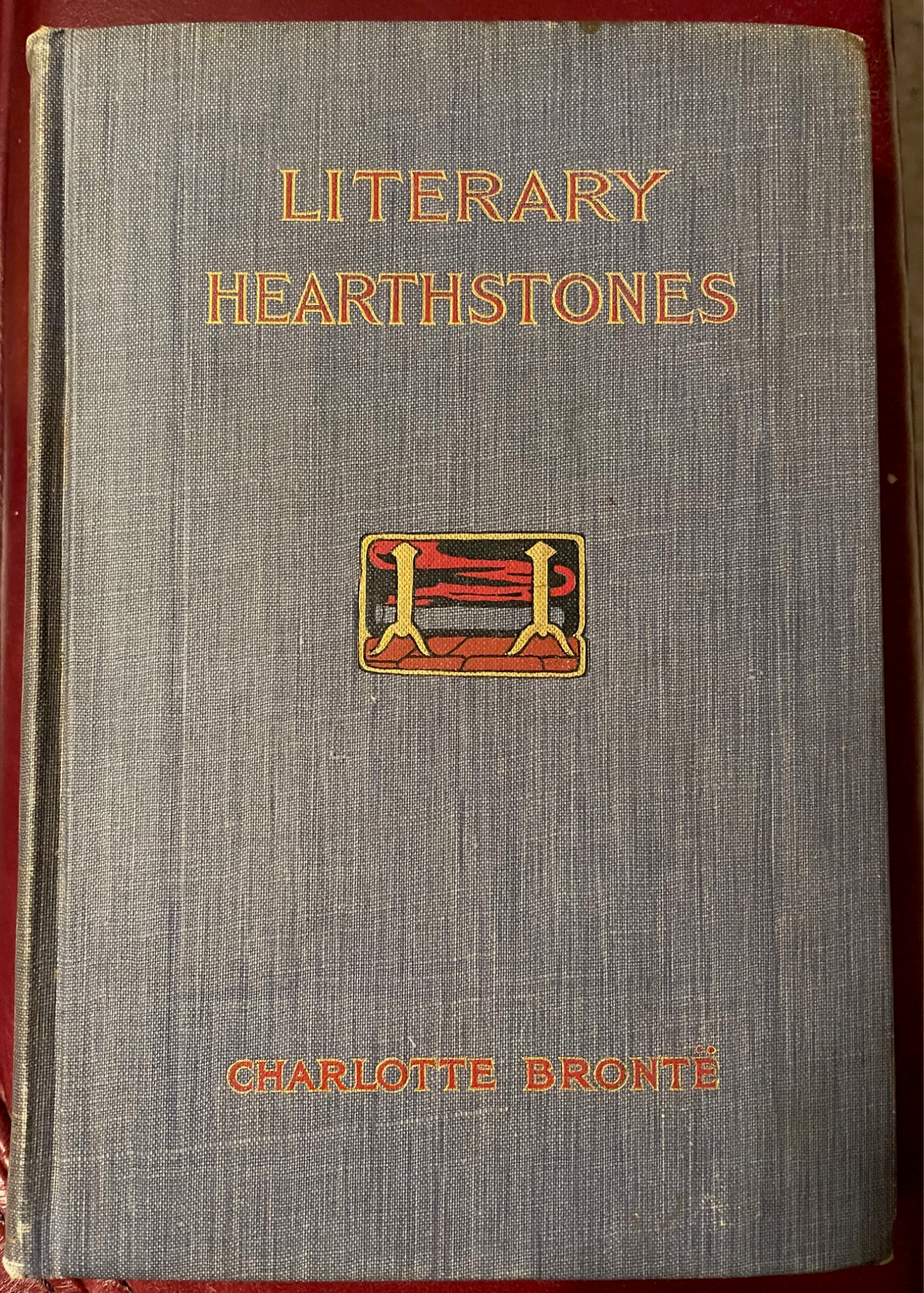Charlotte's Life, Through Late-19th-Century EyesA mid-2021 search on eBay turned up an interesting-looking 1899 biography of Charlotte Brontë that I quickly ordered. Charlotte Brontë at Home, by Marion Harland, is part of a series called Literary Hearthstones: Studies of the Home-Life of Certain Writers and Thinkers. "Marion Harland" was the pen name of Mary Virginia Hawes Terhune, an astonishingly prolific American author. From 1854 through 1919[!], she turned out dozens of books — novels and nonfiction — as well as short story collections, essays, magazine articles, and even a syndicated advice column.
For this book, written more than 40 years after Charlotte's passing, the author managed to interview a variety of people who had had contact with the family when the famous siblings were alive. Chief among her sources was Sarah de Garrs Newsome, who in her teens had served as nurse in the Brontë household ... and who lived until this book's publication year, passing at the age of 93. (In the definitive biography The Brontës, Juliet Barker quotes some of Sarah's writings that appear in Charlotte Brontë at Home.) It is enthralling to read some of Harland's other casual references to people with firsthand Brontë knowledge, e.g.:
A few themes stand out in this book. First, Harland puts great faith in a previous Brontë scholar, whose findings (I am told) are no longer in favor: "To no other published work upon the Brontë family am I so much indebted as to the most interesting volume lately issued by Professor Clement K. Shorter under the title of Charlotte Brontë and Her Circle. It is candid, scholarly, and comprehensive, and to it my final appeal was made when other biographers differed as to leading facts, or were confusing in details." Second, she makes bold critiques of conclusions that other Brontë biographers (besides Shorter) had reached about potentially unsavory moments of the family's lives. Here are some examples.
Third, as some of the previous quotations have made clear, Harland had a low view of Branwell. She wrote disrespectfully not only of his morals, but also of his talents, e.g.:
For all the criticisms one could fairly make of this work, it must be admitted that Harland wrote with flair. Here are some samples of her prose.
If you have a chance to read this book, I recommend doing so not for its [questionable] value as a reference work, but rather for the pleasure of feeling Harland's devoted enthusiasm reach out across more than a century. Charlotte Brontë at Home is often flowery, sometimes inaccurate, frequently opinionated, but seldom dull. |
|
All contents © 2009-2025 by the owner of JaneEyre.net.
